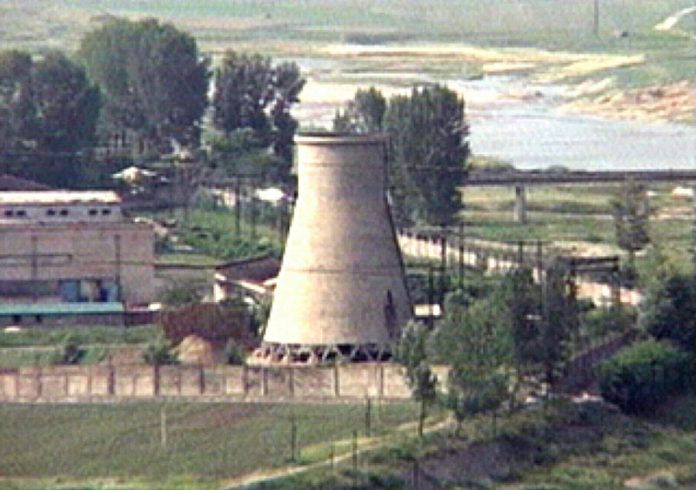After announcing plans to upgrade North Korea’s nuclear arsenal at the Eighth Congress of the Workers’ Party of Korea in early 2021, Kim Jong Un promised in June 2021 that researchers at the country’s nuclear weapons laboratories who achieve their research goals would receive four times the performance bonuses of researchers at other defense research institutes. He also announced that payments would come directly from the party’s funds to maximize the output of the nuclear weapons labs.
Kim also exhorted the descendants of the third and fourth generations of nuclear researchers to work at the lab and play a central role in improving the quality of the country’s nuclear arsenal.
A year later, in June 2022, a ceremony was held in the main hall of a nuclear weapons laboratory to award performance bonuses by order of the party’s Central Committee.
A chart tracking each researcher’s progress toward achieving technical goals in 2021 and 2022 was posted at the entrance to the hall, complete with red bars and percentages to intuitively indicate how much each researcher had done over the past year.
An event to review and evaluate the achievements of researchers in nuclear weapons research over the past year and to pay them performance bonuses was, typically enough, treated as a political event.
At the event, bonuses ranging from KPW 8 million to KPW 400,000 were given to the 20 researchers with the highest research contributions, depending on their ranking on the list. The bonuses were announced in North Korean won, but the actual envelopes contained crisp USD 50 bills.
No freedom to spend as one pleases
After the event, the 20 bonus recipients immediately submitted individual spending plans. Because the bonuses were paid out of party funds, the researchers had to plan exactly where and how they would spend the money and then provide documentation to support the spending, such as receipts or transaction records signed by three or more witnesses.
In short, the researchers were not allowed to spend the bonuses as they pleased, even though they had worked diligently for a year to earn them.
Nevertheless, the bonuses were received with great joy by the researchers and their family members.
Researchers at other defense laboratories and ordinary citizens who heard about the bonuses looked at the nuclear weapons researchers with envy. Some even said that they and their families were living in paradise.
To be sure, the large bonuses were appreciated by these researchers and their families.
But when Kim announced the bonuses, he also said that generations of their descendants would have to work at the nuclear weapons lab, a demand that is sure to weigh on the hearts of the researchers.
In effect, the children of researchers will be forced to abandon their dreams and pledge their loyalty to the state by following in their parent’s footsteps as research-performing automatons.
Perhaps we should ask whether the lives of nuclear weapons researchers and their families are as idyllic as many imagine.
Translated by David Carruth. Edited by Robert Lauler.
Daily NK works with a network of sources living in North Korea, China, and elsewhere. Their identities remain anonymous for security reasons. For more information about Daily NK’s network of reporting partners and information-gathering activities, please visit our FAQ page here.
Please send any comments or questions about this article to dailynkenglish@uni-media.net.



















